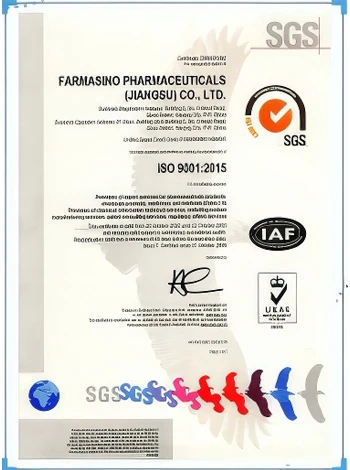



Barium Sulfate Precipitation Reaction and Its Implications in Chemical Processes
The Barium Sulfate Precipitation Reaction An Overview
Barium sulfate (BaSO₄) is an inorganic compound that plays a crucial role in various fields, including chemistry, medicine, and environmental science. One of its most significant applications is its use in the precipitation reaction, a process that allows the formation of a solid from a solution. Understanding the barium sulfate precipitation reaction is essential for both theoretical and applied chemistry, as it highlights fundamental principles of solubility and reaction dynamics.
The Chemical Reaction
The barium sulfate precipitation reaction can be expressed by the following chemical equation
\[ \text{Ba}^{2+} (aq) + \text{SO}_4^{2-} (aq) \rightarrow \text{BaSO}_4 (s) \downarrow \]
In this reaction, barium ions (Ba²⁺) and sulfate ions (SO₄²⁻) react in an aqueous solution to form solid barium sulfate, which precipitates out of the solution. The downward arrow in the equation indicates that BaSO₄ is a precipitate, meaning it is an insoluble solid that separates from the liquid phase.
Solubility Product Constant
The driving force behind the precipitation of barium sulfate is its low solubility in water, which is quantified by its solubility product constant (Ksp). For barium sulfate, the Ksp value is approximately \( 1.0 \times 10^{-10} \) at room temperature. This low Ksp indicates that the product of the concentrations of Ba²⁺ and SO₄²⁻ ions in a saturated solution is very small, meaning that BaSO₄ does not dissolve easily in water. When the concentrations of these ions exceed the solubility product, barium sulfate precipitates out of the solution.
Factors Influencing Precipitation
Several factors can influence the barium sulfate precipitation process
barium sulfate precipitation reaction

1. Concentration of Ions Increasing the concentration of either barium or sulfate ions in the solution can shift the equilibrium toward the formation of more BaSO₄. This can be achieved by adding a barium salt or sulfate salt to the solution.
2. Temperature Generally, the solubility of most salts increases with temperature; however, for barium sulfate, the effect is minimal. The precipitation reaction is mostly unaffected by changes in temperature, making it reliable under various thermal conditions.
3. pH Levels The pH of the solution can also influence the precipitation process. While BaSO₄ formation is not significantly affected by pH, the presence of competing ions, such as carbonate (CO₃²⁻) or phosphate (PO₄³⁻), can lead to the formation of other precipitates, thus decreasing the available sulfate for barium.
Applications of Barium Sulfate Precipitation
Barium sulfate precipitation has a variety of practical applications
- Medical Imaging In medicine, barium sulfate is commonly used as a radiocontrast agent for imaging the gastrointestinal tract. When ingested, it coats the lining of the gastrointestinal tract, making it visible on X-rays due to its high density.
- Environmental Testing The precipitation reaction is used in environmental analysis to determine the concentration of sulfate ions in water bodies. By adding a solution containing barium ions, the formation of BaSO₄ can be measured gravimetrically, providing insight into sulfate levels.
- Industrial Applications Barium sulfate is widely used in various industries, such as the manufacture of paints, plastics, and paper. Its white color and high density make it an ideal filler and pigment.
Conclusion
The barium sulfate precipitation reaction is a fascinating and important aspect of chemistry, showcasing the interplay between solubility, chemical equilibrium, and practical applications. Its significance extends from academic studies to real-world applications in medicine and industry, demonstrating the essential role that understanding chemical reactions plays in advancing scientific knowledge and technological development. The study of BaSO₄ precipitation not only helps in understanding the principles of solubility but also in appreciating the broader implications of chemical reactions in everyday life.
-
Why Sodium Persulfate Is Everywhere NowNewsJul.07,2025
-
Why Polyacrylamide Is in High DemandNewsJul.07,2025
-
Understanding Paint Chemicals and Their ApplicationsNewsJul.07,2025
-
Smart Use Of Mining ChemicalsNewsJul.07,2025
-
Practical Uses of Potassium MonopersulfateNewsJul.07,2025
-
Agrochemicals In Real FarmingNewsJul.07,2025
-
Sodium Chlorite Hot UsesNewsJul.01,2025










